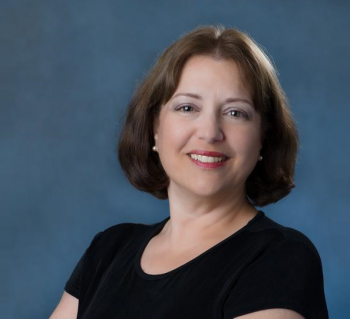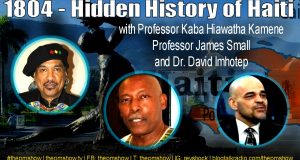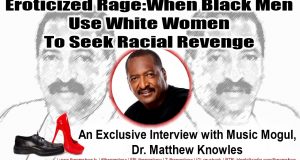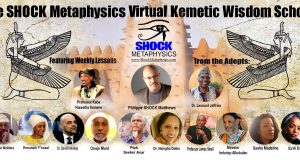
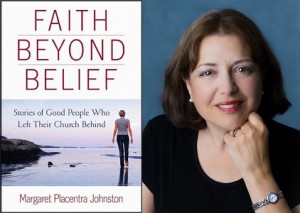 “Faith Beyond Belief” is a great book that gives a much-needed voice to the good people who have left their church, with their spirituality continuing to mature. It contains stories with the first-person point of view, as well as known spiritual authorities, which describe the different stages of religious growth. Some of these real-life accounts are even contributed by non-believers, while others come from those who belong to the increasing group of “spiritual but not religious”. All in all, the contributors are thoughtful people who have too much integrity to live with what they consider a lie.
“Faith Beyond Belief” is a great book that gives a much-needed voice to the good people who have left their church, with their spirituality continuing to mature. It contains stories with the first-person point of view, as well as known spiritual authorities, which describe the different stages of religious growth. Some of these real-life accounts are even contributed by non-believers, while others come from those who belong to the increasing group of “spiritual but not religious”. All in all, the contributors are thoughtful people who have too much integrity to live with what they consider a lie.
The stories of the non-believers, who include a clandestine Muslim apostate who left his community after the 9/11 Attacks, an ex-Mormon and an ex-Catholic, show how complete confidence in human reason has led away from the literal religious interpretation. However, this step is considered to be only intermediate, while being necessary for the spiritual path. Also, another set of stories are based on the experience of people at the “mystic” level, who are able to tolerate paradox and see reality and truth as multi-dimensional elements.
This book by Johnston can help those who are in doubt, as well as those who are struggling to clarify their own spiritual vision, to see things in a new light. It points beyond the believer-atheist controversy that is wrecking a dissenting havoc in today’s world culture.
Who Is Margaret Placentra Johnston?
An optometrist for over 30 years, Dr. Margaret Placentra Johnston has spent most of her professional career helping other people see the physical world better. But now, she is on a whole new mission to provide a different kind of clearer vision, which is a wider perspective about spirituality and religion than what is recognized by the conventional world. Her book, “Faith Beyond Belief: Stories of Good People Who Left Their Church Behind”, has won the 2013 Nautilus Book Award in Religion/Spirituality.
Through this book, Dr. Johnston is bringing a concept of what she calls a spiritual development theory down to a certain level that can be easily understood by the average person. While many theorists from different countries, time lines and disciplines have described a path to spiritual and religious maturity—using different terminology and writing from different perspectives, Johnston is one of the first individuals who insist that these different theorists somehow describe a common phenomenon that deserves notice in society. As described by at least one of these theorists, most clergy who were professionally trained have been offered an academic course that covers faith development, but only a few have actually considered it in-depth and applied it at a practical level in their ministry. Also, only a very few religious believers are ever encouraged to pursue the process, and rather encouraged to find security and comfort in their literal and separate beliefs. However, the spiritual development process requires one to break out of his security or comfort zone and critically reflect to the belief system, in which he is brought up with, which is a scary and bold trip with a “questioning stage” that may cause him to abandon his religious beliefs. Nevertheless, those who successfully push through such a stage may wind up re-engaging with spiritual faith in a more open and less rigid way and may find themselves opening up to a bigger story about spirituality and religion.
For Johnston, this process would allow people to recognize the metaphorical nature of religious stories and the Holy Scriptures. Rather than insisting a single set of literal religious beliefs that are correct, the process lets people to recognize the universal need for humans to connect to something greater than themselves and to accept each of the world’s religions as just a way of a certain culture to express that need, leading to the perspective that all religions are right. She said that beyond literal and separate beliefs, there lies a faith that is based on values and includes a deep trust in the goodness of human existence, as well as a sense of oneness or unity of all things, leading to “universal love”.
Confident that an understanding of spiritual development can bring an end to religious intolerance, Johnston said that it should part of the common knowledge in every culture, thus using true stories from real life people to illustrate the theory in the book, showing the commonalities among the works of various spiritual development theorists. She is aiming to show how the perspective of spiritual development can lead to a kinder and more gentle world.
Dr. Johnston holds a Master of Arts (MA) Degree in Education from the Catholic University of America and a Bachelor of Science (BS) Degree and a Doctorate Degree in Optometry (OD) from the Pennsylvania College of Optometry. She offers speeches and courses on spiritual development to various groups and has been interviewed on numerous radio shows. She also writes blogs for the “Huffington Post” and for Patheos.com. Living with her husband in Northern Virginia, Johnston is a mother to 2 grown sons.
Faith Beyond Belief
As of late, there have been a lot of discussions about the growth of spiritual, but not religious, identification, and not much of it is positive. In the eyes of those who are actively engaged in religion, the “spiritual but not religious” moniker manifests in a person who flits from one brand of mythological sorcery to another, without concern for internal and community consistency. In the eyes of atheists, it engenders a self-righteous disdain that is based on the assumption that a “spiritual but not religious” individual is simply afraid to accept the truth of his non-belief.
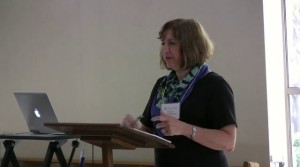 In this book “Faith Beyond Belief”, Dr. Johnston offers another perspective, with the theory that there are stages of spiritual development that are similar to those ascribed to a child’s cognitive development. In her view, the “spiritual but not religious” is a stage of spiritual development that can lead to a fuller expression of religious life. As in other systems of this nature, any person might progress through all of the stages or become stalled on one. The central feature of the book is a collection of true stories experienced by different people who were raised in specific religious circumstances, where each of them has changed their religious affiliation because of different epistemological lines of inquiry. While they underwent spiritual transformation in different ways, each of them ended up in very different places. Looking into the “My Kind of Hell” chapter, David turns from his Catholic upbringing to end up teaching at a United Methodist Church for a Sunday school, while in the “Lotus Opening” chapter, Jean was brought up in a devoted Presbyterian household, but finds her spiritual calling in Wicca.
In this book “Faith Beyond Belief”, Dr. Johnston offers another perspective, with the theory that there are stages of spiritual development that are similar to those ascribed to a child’s cognitive development. In her view, the “spiritual but not religious” is a stage of spiritual development that can lead to a fuller expression of religious life. As in other systems of this nature, any person might progress through all of the stages or become stalled on one. The central feature of the book is a collection of true stories experienced by different people who were raised in specific religious circumstances, where each of them has changed their religious affiliation because of different epistemological lines of inquiry. While they underwent spiritual transformation in different ways, each of them ended up in very different places. Looking into the “My Kind of Hell” chapter, David turns from his Catholic upbringing to end up teaching at a United Methodist Church for a Sunday school, while in the “Lotus Opening” chapter, Jean was brought up in a devoted Presbyterian household, but finds her spiritual calling in Wicca.
When reading this book, you would be interested in the organizing rubric that the author has built around the commonalities between the personal stories. It would seen that Johnston’s line of inquiry has led her to investigate spiritual development theories that were proposed by divergent personalities, such as Saint Teresa of Avila, James Fowler and Adolphe Tanquerey.
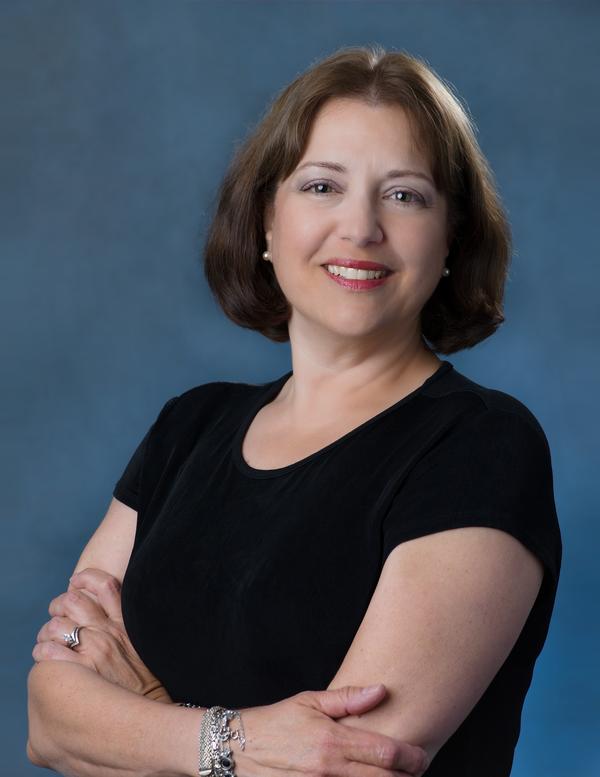 In writing the book, Johnston tries to incorporate the different theories into one accessible sequence for the average reader, labeling them as the “Lawless Stage”, the “Faithful Stage”, the “Rational Stage” and the “Mystic Stage”. The author’s distinction between the lack of faith of people on the Lawless Stage and those on the Rational Stage has become an important contribution to the discussion about the drop of participation in structured religion, expressing many religions’ fear with regards to the moral degradation that they assume would ensue when there is no religious guidance. She associates the former stage with one’s self-centeredness and his lack of concern on what impact he might have on his community. Oppositely, she characterizes the latter stage by faith in one’s ability to self-monitor his own actions and by his recognition that religion is not necessary to have a positive impact on the world, suggesting that society is not moving back entirely to the former stage, but rather flowingly moving forward towards the Rational Stage and beyond, eventually. In the end, the book, “Faith Beyond Belief” reiterates the modern trends as a sign of hope for society’s spirituality.
In writing the book, Johnston tries to incorporate the different theories into one accessible sequence for the average reader, labeling them as the “Lawless Stage”, the “Faithful Stage”, the “Rational Stage” and the “Mystic Stage”. The author’s distinction between the lack of faith of people on the Lawless Stage and those on the Rational Stage has become an important contribution to the discussion about the drop of participation in structured religion, expressing many religions’ fear with regards to the moral degradation that they assume would ensue when there is no religious guidance. She associates the former stage with one’s self-centeredness and his lack of concern on what impact he might have on his community. Oppositely, she characterizes the latter stage by faith in one’s ability to self-monitor his own actions and by his recognition that religion is not necessary to have a positive impact on the world, suggesting that society is not moving back entirely to the former stage, but rather flowingly moving forward towards the Rational Stage and beyond, eventually. In the end, the book, “Faith Beyond Belief” reiterates the modern trends as a sign of hope for society’s spirituality.
The author’s discussions of the spiritual stages and what they imply provoke thoughts. They would be great considerations as part of anyone’s spiritual study. However, you might also notice the hierarchical nature of the stages to be parochial as they insist that people should go through a period of questioning before they would become spiritually advanced. Those who have remained in the religion they were born to would presume that Dr. Johnston is insulting the constancy of their faith, though the author does state that leaving a birth religion is not endemic to the spiritual development process. According to a Pew Report published on the 14th of October, 2012, 16.1 percent of people in the US have no religious affiliation, yet 70 percent of these individuals do believe in God. Taking this context into consideration, it can be difficult to see the trend towards the personal, rather than the dogmatic faith, as step backward in terms of morality. But regardless of your position on this matter, “Faith Beyond Belief” is providing a framework that allows people who do not have a strong academic philosophical background to participate in the discussions it brings.
For more of Margaret Placentra Johnston, check out these sources:

 Philippe Matthews Show Guru Advice, Author Reviews, Tech Reviews, Entertainment News
Philippe Matthews Show Guru Advice, Author Reviews, Tech Reviews, Entertainment News


